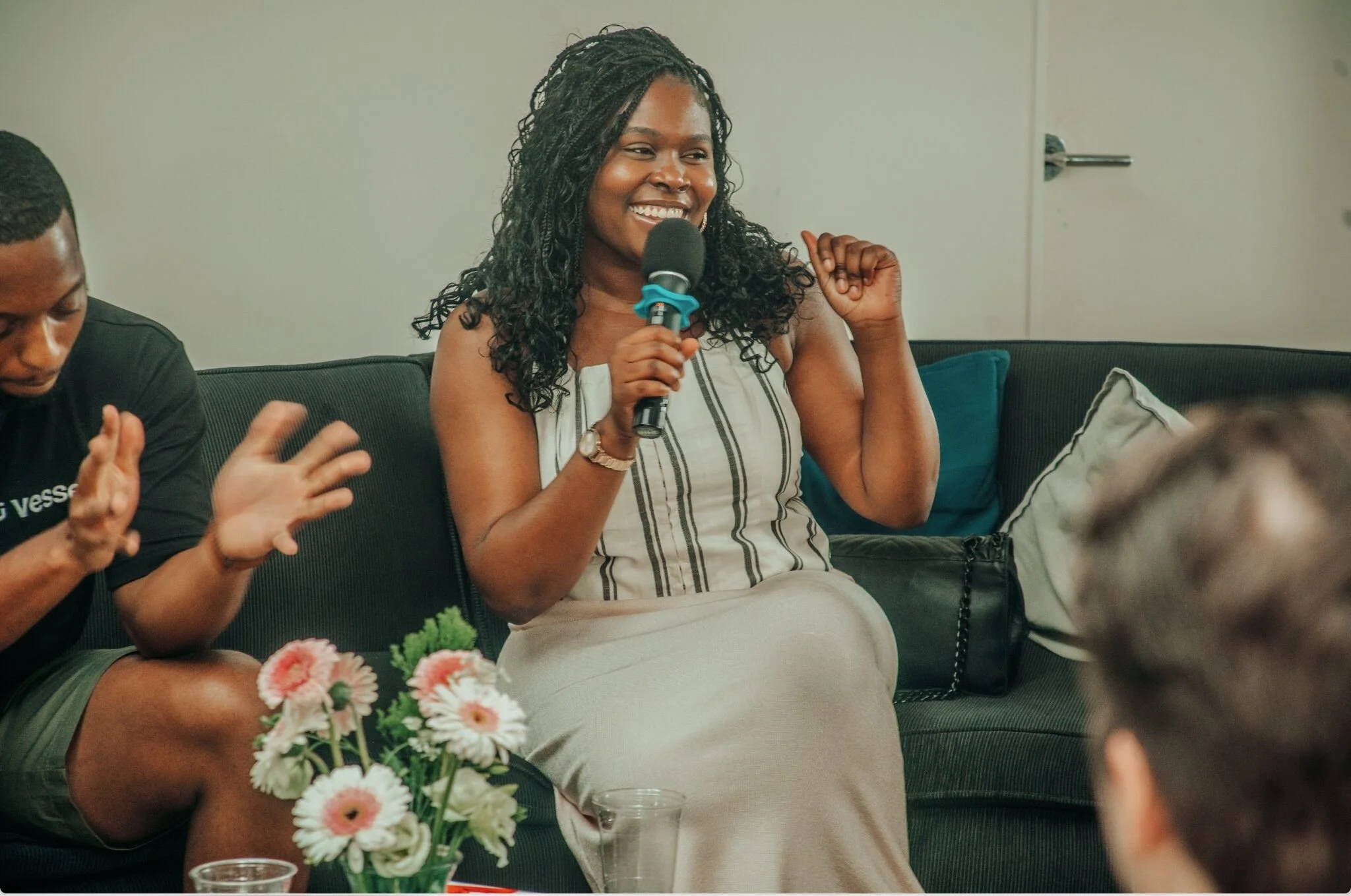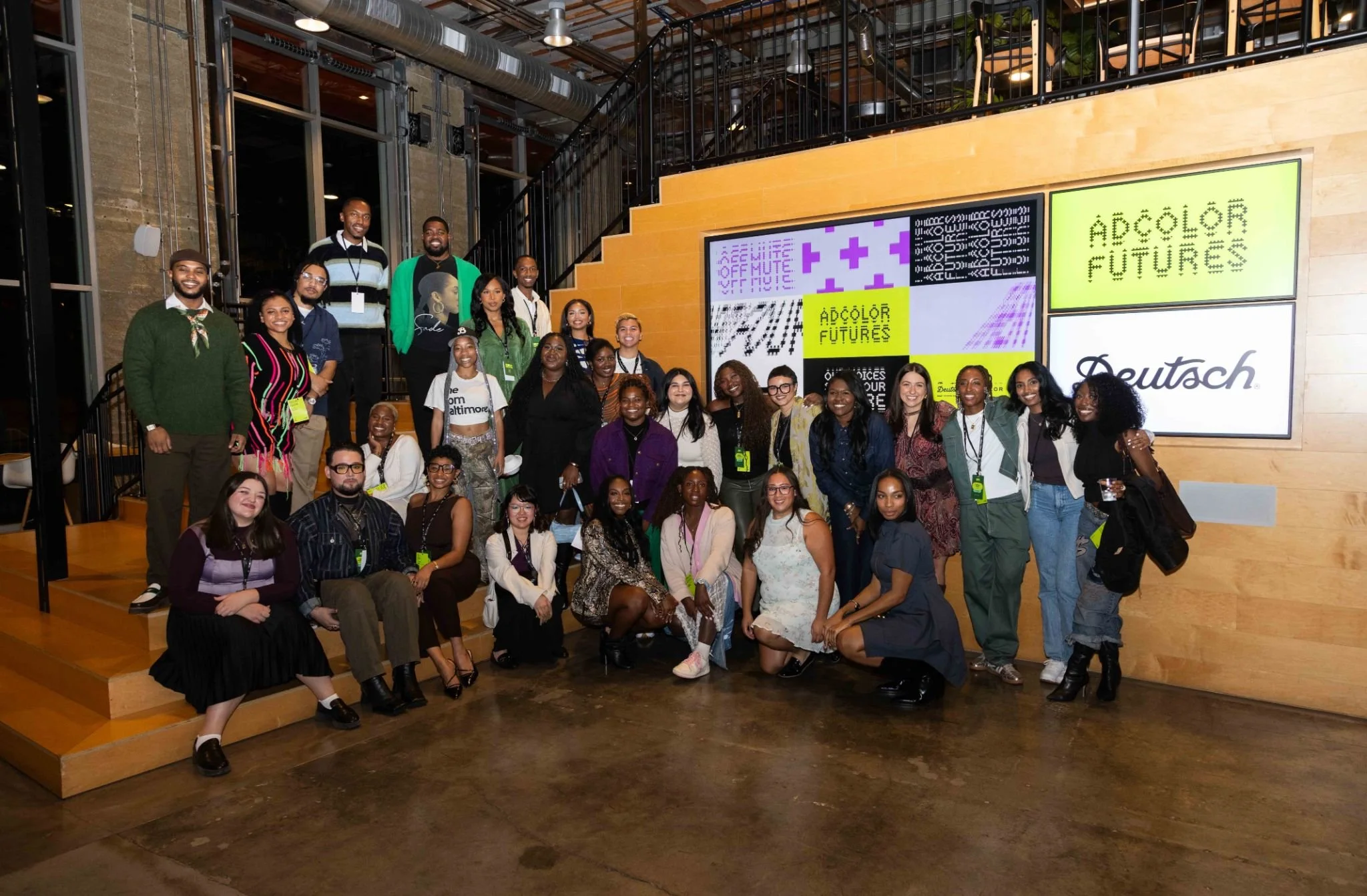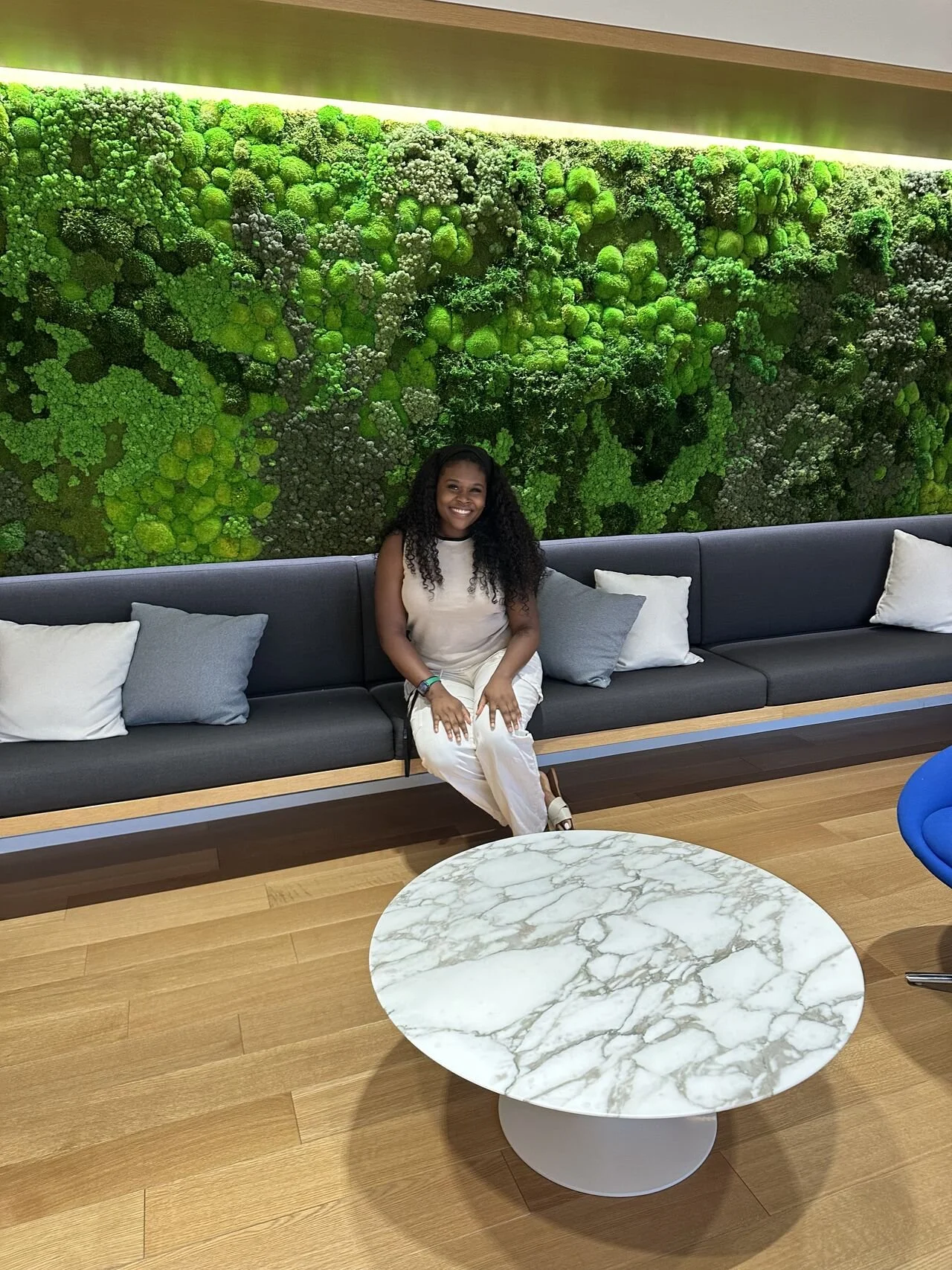Deandra Simon (All rights reserved to owner)
Deandra Simon is a Technical Program Manager at Apple Music, where she leads cross-functional efforts to launch new features and podcast innovations for millions of users. With a background in multimedia storytelling and partnerships at companies like Disney and Paramount, she bridges creativity and tech with ease. Passionate about representation, she actively mentors and advocates for women of color in media and technology.
Being a first-gen Haitian American often comes with unspoken expectations. In a recent interview you shared, “There comes a limit sometimes in what you choose in terms of your career and what you want your future to look like. You sometimes have to put your dreams on hold because you have to think of where your reality may lie.” What would you say to someone who feels torn between honoring their family's sacrifices and pursuing a path that truly serves who they are?
DS: It really becomes difficult when you're thinking about the sacrifices your family has made, and then wanting to honor them, but also wanting to serve yourself. I think of a conversation Michelle Obama recently had. She was specifically talking about first-generation students. She mentioned how, as much as you want to help your family, sometimes when you get that first refund check from school, your first instinct is to give it back to them. But she said, “Don’t give the money back—focus on yourself. If you have to pay off your tuition, pay off your tuition. Pay for your books. Handle your business. Because as much as we want to help people, especially when we’re just getting our feet off the ground, that can hurt us the most.” We’re not in a position to give without sacrificing ourselves.
The reality is, our parents have lived their lives to some extent, and we’re just starting ours. It took a lot of prayer, a lot of stillness, and a lot of discernment for me to understand when to sacrifice and when to pause. There were times I did have to step in and help my family. But I also knew they appreciated the moments where I invested in myself—because that would have long-term benefits for all of us. I had to pour into myself to build the life I truly wanted and live it authentically, rather than trying to fit into the mold of what my parents imagined for me. Now that I’m older and our relationship is healthy, I realize my parents operated from a place of survival. They did what they could with what they had. But survival often comes with a limited mindset. Dreaming is a privilege. And once I recognized that some people don’t even have the mental capacity to dream—because they’re too focused on just making it through the day—I understood how sacred that ability was. I try to nurture and protect that part of me.
Because life can become mundane. You can hit all your goals and dreams, and still find yourself asking, “What’s next?” And if you haven’t protected that inner dreamer, it’s easy to lose your way. When I think back to the high school version of me, the college version of me—I know I have to protect that dreamer in me. That’s what keeps me going. Not the accolades, not the titles—just the dreamer.
Deandra participating in ADCOLOR Futures (All rights reserved to owner)
You once envisioned a future in law, but when your internship offer was unexpectedly retracted, you found yourself at a crossroads. In a surprising twist, Essence played a key role in sparking your interest in tech. How did you process that moment and what gave you the courage to take the leap into something completely new?
DS: Essence was a really transformative event for me. I'd never seen that many Black people all together in one room, I didn't go to an HBCU. So going to City University, although there were a lot of people who looked like me—there were a lot of immigrants—I didn't know that this was possible and I didn’t know what being in a room of Black excellence looked like. So when I started walking in the convention center, I turned around and saw McDonald's activating and Disney activating—in my mind, my wheels started churning. I was just like, “Wait, there was a team that put this together?” Or wow there’s AT&T Dream in Black, who's the mastermind behind this? How did they get to activate? And then, in my head, I was like, “Wait—corporate companies get flown out to events like this?”— to do something I would do for fun—and they're getting paid, and this is their job. I was just like wow, “How can I get into this?”
Funny enough, going to Essence Festival is how I actually got my first internship. I went to the Coca-Cola stage, and at the time, the movie Girls Trip came out. Essence does this campaign every year called "If Not For My Girls,"—Keri Hilson was a part of that campaign, and they were doing a contest where if you have a group of friends that are girls, if you guys want to do karaoke—the best group will win tickets to the concert. We didn't end up winning the contest. But I was talking to the people who were doing the activation, and I asked, “What company is this?” And they said, “It's Team Epiphany.” During a previous program I participated in, “Girl Wonder”—I was a part of their Leadership Academy, and long behold, Team Epiphany was one of the companies that we visited. Through that interaction I was able to get my first internship in the media industry from going to Essence Festival, and I interned at Team Epiphany in their PR department.
I was a broke recent college graduate, barely had any money, but I do believe, especially for first-generation or anyone who's trying to get it out the mud—access, exposure and proximity allow you to create a playing field. That’s what I love about Essence, I was super inspired, and that really allowed me to build out the career that I have now, even with the many pivots.
“When I think back to the high school version of me, the college version of me—I know I have to protect that dreamer in me. That’s what keeps me going. Not the accolades, not the titles—just the dreamer.”
- Deandra Simon
You studied the ecosystem of the tech industry before entering it — reading tech execs post, tracking recruiters, and leveraging every connection you made on LinkedIn. Your strategy wasn’t random, it was rooted in awareness and access. What advice would you give to someone just starting out who doesn’t have a network but wants to build one with intention? How can they pitch themselves?
DS: For someone trying to build a network with intention, I’d say it’s easier to start off with a specific industry you’re interested in that also aligns with your likes and interests. Although I was on an entertainment track and wanting to pivot there, I also started off exploring many different career possibilities. At first, I thought I wanted to work in PR, then marketing, so I started in entertainment and worked my way up from there. I also interwove my interests—I was into music, fashion and beauty. It’s helpful to think about the industry first, and the functions then follow from there. If someone is a marketer, for example, they can be a marketer in sports, music, or tech—it's not limited to one field. That was actually a great piece of advice I got from a mentor, who told me if you want to build a strong career in marketing, focus on the top companies doing marketing. From there, you can pivot into other sectors like sports. It’s harder to do the reverse—starting in a niche and trying to jump into a leading brand later.
What makes a good pitch is blending storytelling, keeping someone engaged, being concise, and having a clear, direct ask. Think about the viral “dinner with Jay-Z or $10,000” debate. If you chose the dinner, would you know what to say in those 30 minutes? Would you have a direct ask? A lot of people don’t actually know what they want and hope others will figure it out for them. There’s definitely space, especially for college students, to explore and gain insight from others' careers to better understand their own likes and dislikes. But you should still craft a tight pitch. For example, “I’m interested in being a multicultural marketer at the intersection of AI and beauty.” That kind of pitch makes you memorable, helps people know exactly how to support you and opens up opportunities. A good pitch doesn’t just land you jobs—it builds relationships. I’ve pitched myself for roles I didn’t get, but recruiters remembered me and later connected me with other opportunities. Even during internships, I’ve referred other students to roles I didn’t take. Now, even as I explore new interests beyond my 9-to-5, I know a strong pitch is essential. In this age of social media, it’s key for personal branding—whether on LinkedIn, Instagram, TikTok, or elsewhere.
Deandra Simon visits Apple headquarters “Apple Park”, in Cupertino, CA. (Rights reserved to owner)
For young adults trying to future-proof their career in tech, what should they be learning—and what roles should they be exploring that others might be overlooking?
DS: A couple of careers come to mind. Anyone who's really skilled in task—like you're the friend that's planning all of the trips, taking all the deposits, and making sure that trip is getting out of the group chat—you should definitely look into project management or program management. If you are an extrovert, or even an ambivert, that is a great job because you're skilled in creating influence, you are able to build momentum and motivation for others to do their work, and you're good at following up and executing until something is ready to go live. Now, if you're really good with numbers and storytelling, I would recommend for our BIPOC community to look into data science. I think people are a little bit scared to look into data science because of the math that's involved. But, working in tech, a lot of the times when we are shipping features—whether it's on the software or the hardware side—numbers are what we're relying on to see the metrics of how successful something is. Data science is a really great blend of storytelling, because you're able to take these metrics and numbers of how something is performing and then translate that into a keynote or a presentation where you're able to bring these numbers to life.
Customer success managers, account executives, product specialists, business development—there are many overlooked careers. People often focus on software engineering because it’s heavily promoted, but there are many different paths to build a foolproof tech career. Everyone is talking about AI and machine learning, which are big right now. Large language models are the core of most AI systems, so if you want to get into that, aim to become an expert and build something yourself. Also, don't limit yourself to only the large, well-known tech companies. Expand your knowledge—look at the brands and companies you use daily. Most of them have tech departments where you can start and grow your career. Many companies are building amazing things and have great missions—and they pay really well.
What role does representation play in helping the next generation believe that their dreams and aspirations are truly possible?
DS: Representation is the key. That’s the catalyst of inspiring the next generation, because it took me to see—and I mean, it doesn’t even necessarily take a Michelle Obama—but I can name numerous people. Imani Ellis was someone I had an opportunity to intern with, she’s someone that I remember specifically. When I got the chance to do Girl Wonder Leadership Academy, we had a visit to go to NBC, and I saw her work as a publicist with NBC. Then our paths crossed—not only interning with her, but I also worked at Watch What Happens Live, and I saw her being Andy’s publicist. I saw someone who was really skilled in the work that they wanted to do and very adamant about building community. Seeing her rise as an entrepreneur really changed the game.
My advice to anyone who may be in the position—where you want to execute, you have a dream, but you feel like so many people around you are doing the same thing—is this: it may be hard to just say “just do it,” but really, there’s always going to be a lane and a space carved out for you. If you live your life comparing yourself to others, you’ll never get to allow the world to see the greatness that you have to offer. If I had that mentality—thinking, “Well, everyone wants to get into media, and everyone wants to get into tech”—I wouldn’t have been able to be where I am today. Even when I started my own organization, I thought, “A lot of people are starting things, especially in 2020,” and if I had that mentality, I would have never started it—never realizing the uniqueness I brought to the table. It’s always good to look at what other people are doing as inspiration, but don’t get stuck in just the consuming phase. Ideation and creation are also beautiful ways to not only share your gifts, light, and uniqueness, but they’re essential. As a creative, it’s necessary to execute and produce more than you consume, because it’s flexing a muscle that a lot of people miss out on.
Want to hear more amazing stories like this? Check out our “More of Us” series! If you want to connect with Deandra and support the work she is doing, follow her on LinkedIn to connection by clicking here.



